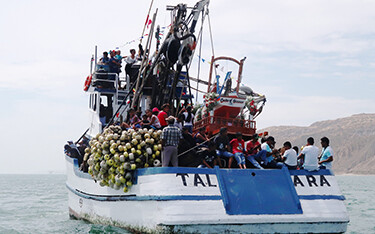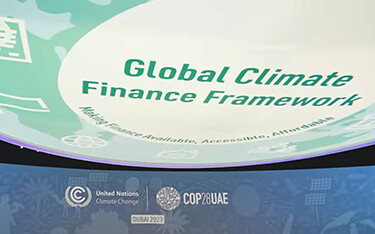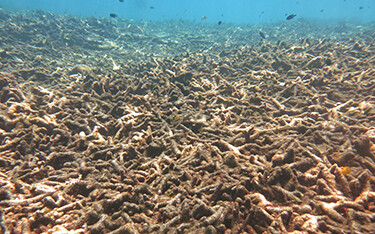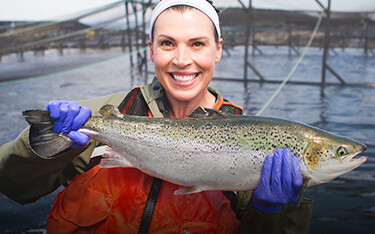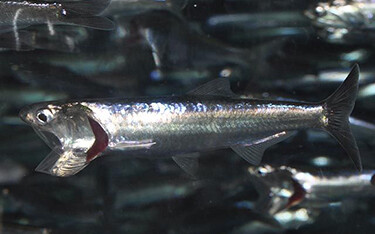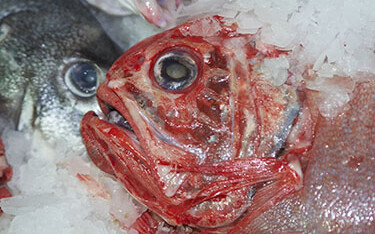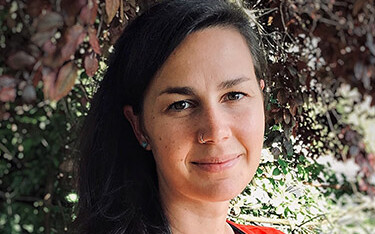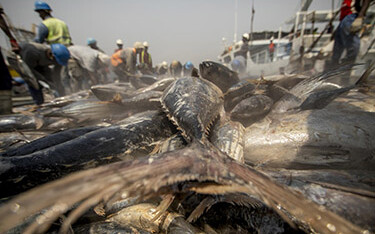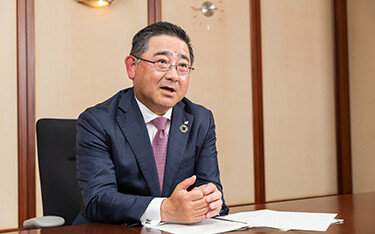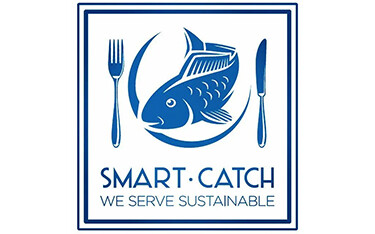Ned Daly is a sustainability strategist with Diversified Communications. He has worked on sustainable markets in a variety of resources for 25 years. Ned worked in seafood for the last decade with SeaWeb, Previously he was director of RugMark International (now GoodWeave), a certification program for child-labor-free rugs coming from Southeast Asia. He also served as chief operating officer for the Forest Stewardship Council in the United States, managing relationships with industry leaders and a diversity of key stakeholders including conservation nongovernment organizations, policymakers and industry trade associations. Ned has also worked on sustainable markets in the agricultural sector and the relationship between resource extraction and ecosystem health. He lives in Alfred, Maine.
Author Archive
The Global Seafood Alliance (GSA) and FishChoice have launched a collaborative project intended to address accountability issues in fishery improvement projects.
The program will use GSA’s seafood processing standard (SPS) to support greater supply chain assurance and traceability for FIPs reporting on FisheryProgress.org. GSA’s processing standard evaluates environmental responsibility, social accountability, and food safety for
… Read MoreMore than a dozen foundations have pledged USD 250 million (EUR 232 million) over a five-year period to support efforts to address the global climate crisis through coordination and collaboration within the ocean-related funding community.
The recipient of the funds, the newly created Ocean Resilience and Climate Alliance (ORCA), will focus on how philanthropy can help drive and scale ocean-based solutions to climate change and increase
… Read MoreU.K.-based nonprofit ClientEarth has released a report linking global biodiversity decline and potential financial and legal risk for companies in the seafood and agriculture sectors, as well as the institutions that finance them.
Its report, “Legal risks related to biodiversity loss in the seafood and agriculture sectors,” focuses on European Union regulation and provides an overview of applicable laws that may give rise to legal
… Read MoreCompassion in World Farming (CIWF) has released the first edition of its new salmon welfare scorecard.
The U.K.-based non-governmental organization, which advocates for animal welfare across a number of agricultural sectors including in the aquaculture sector, announced the launch of the scorecard in May 2023 at Seafood Expo Global in Barcelona, Spain.
The Salmon Welfare Scorecard assessed some of aquaculture’s biggest companies,
… Read MoreNew research analyzing 45 years of data has identified ecological correlations that may help explain why California’s anchovy population goes through boom and bust cycles, which have previously evaded scientific explanation. If the conclusions of the research hold up, they could provide a stronger baseline for management and conservation of the anchovy fishery in the Western U.S. state.
The Northern Anchovy (Engraulis mordax) is
… Read MoreThe east and south Chatham Rise stocks, which account for approximately 80 percent of New Zealand’s orange roughy catch, have lost their Marine Stewardship Council (MSC) certification.
Losing the certification and its accompanying label is problematic for the fishery, which sends more than half its catch to the U.S.
Last year, the fishery was recertified to the MSC standard, despite concern around the stock assessment the
… Read MoreThe World Benchmarking Alliance (WBA) recently released its third and final Seafood Stewardship Index, benchmarking the world’s 30 largest seafood companies against the United Nations’ Sustainable Development Goals (SDGs). In a SeafoodSource interview, WBA SSI Lead Helen Packer discussed the ultimate version of the report and what it says about the seafood industry.
SeafoodSource: What are the biggest takeaways from this
… Read MoreThe World Wildlife Fund (WWF) has launched a new platform intended to identify areas that are likely to experience maritime conflict or food insecurity due to climate-driven fisheries migration.
The Oceans Futures program, launched at The Halifax International Security Forum on 18 November, is a response to a 20-fold increase in fisheries conflict over the last four decades and a projected 23 percent of global fish stocks migrating due to
… Read MoreJapan’s seafood industry is rapidly changing. For example, a 2020 fisheries law significantly changed guidance around effective practices in fisheries management. Japanese producers and harvesters, meanwhile, are increasingly adopting measures to provide assurances of responsible supply geared both toward the domestic market – where consumer interest in sustainable seafood is growing – and the export market, with the latter
… Read MoreSmart Catch, a program developed by the James Beard Foundation with support from Paul Allen’s Vulcan Foundation, has been acquired by Where Food Comes From, Inc.
The program, which was launched in 2016 and expanded in 2017, works with chefs and restaurants to promote sustainable seafood through training, education, and awards a Smart Catch seal for participating restaurants.
Where Food Comes From is an independent, third-party
… Read More






